- News
- Reviews
- Bikes
- Components
- Bar tape & grips
- Bottom brackets
- Brake & gear cables
- Brake & STI levers
- Brake pads & spares
- Brakes
- Cassettes & freewheels
- Chains
- Chainsets & chainrings
- Derailleurs - front
- Derailleurs - rear
- Forks
- Gear levers & shifters
- Groupsets
- Handlebars & extensions
- Headsets
- Hubs
- Inner tubes
- Pedals
- Quick releases & skewers
- Saddles
- Seatposts
- Stems
- Wheels
- Tyres
- Tubeless valves
- Accessories
- Accessories - misc
- Computer mounts
- Bags
- Bar ends
- Bike bags & cases
- Bottle cages
- Bottles
- Cameras
- Car racks
- Child seats
- Computers
- Glasses
- GPS units
- Helmets
- Lights - front
- Lights - rear
- Lights - sets
- Locks
- Mirrors
- Mudguards
- Racks
- Pumps & CO2 inflators
- Puncture kits
- Reflectives
- Smart watches
- Stands and racks
- Trailers
- Clothing
- Health, fitness and nutrition
- Tools and workshop
- Miscellaneous
- Buyers Guides
- Features
- Forum
- Recommends
- Podcast
£1,799.99
VERDICT:
Well-mannered mile-muncher for those who like a stiff ride
Weight:
8,860g
Contact:
At road.cc every product is thoroughly tested for as long as it takes to get a proper insight into how well it works. Our reviewers are experienced cyclists that we trust to be objective. While we strive to ensure that opinions expressed are backed up by facts, reviews are by their nature an informed opinion, not a definitive verdict. We don't intentionally try to break anything (except locks) but we do try to look for weak points in any design. The overall score is not just an average of the other scores: it reflects both a product's function and value – with value determined by how a product compares with items of similar spec, quality, and price.
What the road.cc scores meanGood scores are more common than bad, because fortunately good products are more common than bad.
- Exceptional
- Excellent
- Very Good
- Good
- Quite good
- Average
- Not so good
- Poor
- Bad
- Appalling
For 2018 Vitus has given its endurance model, the Venon, a revamped frameset to improve the balance of speed and comfort. It's not just a matter of oversizing this and promoting flex here or there, this CR Disc 105 model's geometry has had a massive overhaul, making it a lot less aggressive than its 2017 predecessor.
- Pros: Neutral handling makes for an easy bike to ride, 30mm tyre clearance
- Cons: Quite stiff for an endurance bike
If you take a look at our First Ride piece on the newly launched Venon back in 2016, you can see how much this new model has changed.
The ride
For 2018 a lot of the tubing has been beefed up for power output, like that massive down tube, and the bottom bracket area and chainstays aren't exactly shrinking violets either; the whole thing looks a lot more aggressive.
It means the Venon is a very stiff bike, which goes against the thinking behind many endurance bikes, as they tend to be a little easier on the contact points than an out and out race bike.
The Venon CR is a fast bike, too, especially over long distances, though it doesn't have the snappy acceleration of a race bike and feels heavier than you'd expect of its 8.86kg (19.5lb) overall weight. Moving off from a standing start quickly, you have to work quite hard and if you're on busy roads with multiple traffic lights, roundabouts and junctions it can become labouring on the legs, especially if you're trying to maintain your place in traffic.
Once you're moving, though, the Venon rolls well and you can really cover some decent mileage over varying terrain.
The slightly upright position means you can use the drops to get out of the wind without having to get into too extreme a position, and if you spend most of your time on the hoods you can stay much more relaxed around the shoulders, neck and back.
The high levels of stiffness mean the Venon climbs pretty well, though it does favour those short, sharp ones where you can get out of the saddle and really nail it. Then again, if it's a long drag, that relaxed position comes into play, allowing you to tap out a rhythm to the top.
For 2018 this 56cm Venon has had the head angle relaxed by half a degree to 72.5, and the wheelbase is slightly longer by about 10mm at 993mm. That's still pretty short for a disc brake-equipped road bike, and gives the CR Disc a slightly neutral and sedate feel as regards handling.
It's fine in the non-technical stuff and actually means it is a very easy bike to ride whatever your level of ability, or when you are tired coming towards the end of an epic event.
High-speed descending was a little vague – I couldn't quite get the feedback I wanted on road conditions and grip levels going into corners so found myself making constant little micro-adjustments to stay on the correct line. Keep the speed at sensible levels, though, and you'll be fine, and if the bike does step out of line it does so gradually and you don't really have to fight it back to where you want it. Exhilarating, maybe not; safe, yes.
It's a sensible compromise for this style of bike. If you're a sportive rider you're likely to find yourself on a lot of unfamiliar roads, and nearly every organiser feels the need to send you up all of the steepest local climbs and obviously down them. A neutral handling machine with no surprises is ideal.
Frameset & geometry
The frame is made from Toray T700 high-modulus uni-directional carbon fibre, as is the fork, which also includes a full-carbon tapered steerer increasing from 1 1/8in to 1 1/2in as it gets to the crown.
As I've said above, it is a very stiff frame, with its carbon layup offering very little in terms of 'give' anywhere.
Oddly, though, the frame barely resonates over rough surfaces; in the comfort stakes that goes a long way to offsetting the firm ride.
The new frame comes with 28mm tyres as standard but it'll take up to a 30mm width so you can knock the pressure down a bit to compensate for the frame.
Internal cabling features throughout and will work with both mechanical and electronic groupsets (you can get an Ultegra Di2-equipped model for £2,999.99) and you get no rattles from the cables or hoses. The down tube entry ports have been moved to the head tube for a much cleaner look.
A couple of years back when the Venon was first developed, disc brake calliper standards hadn't really settled down, but now most people are agreed that 12mm thru-axles are where it's at when it comes to wheel retention. It's this setup that we now see on the 2018 model rather than the 15mm thru-axle fork and rear quick release found last year.
Geometry has seen the biggest changes, though, especially with the range being reduced from six sizes to just five.
Last year's 54cm is closest to the M(56cm) model we've got here, and the main difference is the length of the head tube: an extensive 170mm on our test model compared with 140mm for the previous model.
This has obviously made it taller at the front end and had an effect on the stack figure. This 571mm, when divided by the reach of 381mm, gives you a more endurance-friendly ratio of 1.5. The original model was around 1.4, which is race bike territory.
Overall, the Venon has become a much more relaxed ride, making the difference between it and the Vitesse, Vitus's race bike, more clearly defined.
Groupset & options
Our test bike, as you can guess by the name, is the Shimano 105-equipped model, priced at £1,799.99. There is also a women-specific CRW model for the same price.
The range starts with a Tiagra setup, which costs £1,399.99, with two Ultegra models sitting above the 105 bikes, a mechanical option that'll set you back £2,199.99, and that Di2 version I already mentioned for £2,999.99.
The model we've got comes with a full groupset from Shimano, so no crankset swap-out or anything to save costs.
Gearing-wise, the Venon shows its speedy intentions with a 52/36-tooth semi-compact chainset, where most endurance bikes would go for a compact 50/34. This is paired to an 11-28 11-speed cassette which gives a taller spread of gears than you'd expect for an endurance bike, but you could drop that lowest gear by swapping to an 11-32. Vitus has included a long cage rear mech, which makes this a cheap and easy switch without having to update any other components.
Shimano's 105 is probably next up for an upgrade, since we've recently seen the excellent new Dura-Ace and Ultegra groupsets, but this current 5800 model still offers great shifting and value for money.
The Venon CR 105 uses hydraulic disc brakes so you get the 105 equivalent hydro levers which, it has to be said (time and time again by me just in the vain hope Shimano is listening), aren't as good at changing gear as the mechanical models.
I find them uncomfortable too, especially where they have this gap underneath the hood which can nick the skin of your fingers if you aren't careful when flicking the lever across.
Braking is pretty decent, though not on the same level as the more expensive and more appealingly shaped Dura-Ace/Ultegra versions.
The Venon uses flat-mount brake callipers and is specced with a 160mm front rotor and 140mm rear; there's plenty of power and modulation.
Although the Venon doesn't take mudguards, the addition of disc brakes seems like a sensible idea. Being a bit of an all-rounder, the Vitus is likely to be used in a lot of weather conditions and ridden on unfamiliar roads, where a bit of extra braking power is welcome, just in case.
Wheels & tyres
DT Swiss's E1800 wheelset is a nice addition to the spec list, considering their £350 rrp, often a place where downgrades are made. It's great to see a bike coming with a great set of wheels – after all, they are one of the major defining elements of how a bike rides.
The E1800s are part of DT's endurance range so they've been designed with reliability in mind, married to performance and weight. A claimed weight of 1,660g is pretty good too, so they don't feel like they are holding the bike back. And durability is top notch, especially with the latest batch of rain and freezing temperatures doubling the number of potholes around here.
Ultra Sport II is Continental's entry/mid-level road tyre and they offer a decent mix of grip, durability and rolling resistance. Thanks to the new compound, compared with the originals cornering confidence is much higher because of the increased grip; they are nowhere near as sketchy in the wet as they used to be.
I had no issues with punctures either, especially good considering the amount of hedge trimming going on around these parts.
Finishing kit
The rest of the components are all Vitus branded and similar to that seen on other bikes in its range. It all works well enough, with the alloy handlebar offering plenty of usable hand positions thanks to its compact shape.
The stem is also aluminium alloy, but at the rear you do get a carbon fibre seatpost in a 31.6mm diameter. Shimming this down to a 27.2mm might be an option to bring a little more flex into the equation. The Vitus branded saddle has a decent amount of padding and I found it quite a nice shape.
Value
At first glance I thought the Venon CR Disc 105 looked a little on the pricey side, but checking back through recent reviews and the latest price lists from the big brands just shows that everything has crept up.
Trek's Emonda SL 5 is £1,800, and while it doesn't have disc brakes it does come with a 105 groupset and carbon frameset like the Vitus.
> Buyer's Guide: 22 of the best 2017/2018 sportive bikes, from £500 to £9,000+
Giant's Defy Advanced 1 is the Taiwanese manufacturer's endurance model most in line with the Venon, and it's the same price. It does get Ultegra mechs but with a non-series crankset and 105 mechanical shifters, as it uses Giant's own cable to hydraulic brake converter. The fork also has an alloy steerer.
You can go cheaper if you wanted to, with Ribble's Sportive Racing Disc; it's slightly lighter and nearly £200 cheaper at just £1,604.
Conclusion
The Venon CR Disc 105 has morphed away from its racing geometry to create a bike that is easier to live with for those who don't want all-out performance.
It hasn't dropped those high-speed ambitions, though, and it's still a very quick bike in most conditions, so it'll just come down to whether or not you can cope with that firm ride on long jaunts in the saddle.
Verdict
Well-mannered mile-muncher for those who like a stiff ride
road.cc test report
Make and model: Vitus Venon CR Disc 105
Size tested: 55cm
About the bike
State the frame and fork material and method of construction. List the components used to build up the bike.
Vitus lists:
Frame Carbon
Forks Carbon
Chainset Shimano 105
Bottom Bracket Shimano
Shifters Shimano 105
Front Derailleur Shimano 105
Rear Derailleur Shimano 105
Cassette shimano 105
Chain KMC X11
Rims DT Swiss E1800
Front Hub DT Swiss E1800
Rear Hub DT Swiss E1800
Spokes Double butted
Tyres Continental Ultra sport II
Front Brake Shimano BR-RS505
Rear Brake Shimano BR-RS505
Handlebars Vitus alloy
Stem Vitus alloy
Headset Token - Intergrated Ahead tapered
Saddle Vitus
Seatpost Vitus carbon
Seatclamp Alloy
Tell us what the bike is for
Vitus says, "Built to combine all day comfort without sacrificing a turn of speed.
The all new 2018 Venon has been developed for speed whatever distance your ride. A true allrounder, it's your perfect bike for bike for fast Sportives, eager to cut down your climb times and increase your average speeds.
The test winning Venon has been the go-to endurance bike in the Vitus range, our design teams brief was to keep the core performance spirit of its predecessor, while engineering more comfort and control.
With a shorter and more upright position compared to a traditional race bike, the Venon is designed to increase riding comfort and reduce fatigue, resulting in a smooth and efficient ride whatever the distance or conditions. But don't think the Venon is just a gentle cruiser, the lightweight responsive Hi- modulus carbon frame packs an eagerness to go faster.
All new Venon models feature the latest flat mount disc brakes, providing consistent and controllable breaking in all conditions, with bolt through axles resulting in assured handling no matter how tight the turn, or how bad the road surface.
With the trend for wider tyres the Venon is fitted with 28mm tyres, but has clearance for up to 30c, allowing more comfort on rougher surfaces and opening the road for more adventures."
Frame and fork
Overall rating for frame and fork
8/10
Tell us about the build quality and finish of the frame and fork?
The frame looks to be nicely finished and well put together, as does the fork.
Tell us about the materials used in the frame and fork?
Both the frame and fork uses Toray T700 high modulas uni-directional carbon fibre.
Tell us about the geometry of the frame and fork?
With a slightly shorter top tube and taller head tube than a traditional race bike, the Venon is aimed more at endurance riding.
Full geometry table is here: http://vitusbikes.com/products/venon-cr-disc-105-2018/#geometry
How was the bike in terms of height and reach? How did it compare to other bikes of the same stated size?
Our medium (56) has a stack of 571mm and reach 381mm, giving a not-too-extreme ratio of 1.5.
Riding the bike
Was the bike comfortable to ride? Tell us how you felt about the ride quality.
Yes but it is borderline; with massive tube profiles it is a very stiff machine.
Did the bike feel stiff in the right places? Did any part of the bike feel too stiff or too flexible?
Yes, stiffness levels akin to a race bike.
How did the bike transfer power? Did it feel efficient?
Very good, although the overall weight takes the shine off acceleration.
Was there any toe-clip overlap with the front wheel? If so
No.
How would you describe the steering? Was it lively Neutral.
Tell us some more about the handling. How did the bike feel overall? Did it do particular things well or badly?
The Venon is a very stable machine, which suits the style of riding intended. If you want a quick-handling race bike then it's probably worth looking at Vitus's Vitesse instead.
Which components had the most effect (good or bad) on the bike's comfort? would you recommend any changes?
I got on okay with the Vitus brand saddle.
Which components had the most effect (good or bad) on the bike's stiffness? would you recommend any changes?
A 31.6mm diameter seatpost certainly gives a stiff ride.
Which components had the most effect (good or bad) on the bike's efficiency? would you recommend any changes?
The disc brakes let you brake later and harder, especially in the wet, which means you can keep your speed up for longer.
Rate the bike for efficiency of power transfer:
8/10
Rate the bike for acceleration:
7/10
Rate the bike for sprinting:
8/10
Rate the bike for high speed stability:
8/10
Rate the bike for cruising speed stability:
8/10
Rate the bike for low speed stability:
8/10
Rate the bike for flat cornering:
8/10
Rate the bike for cornering on descents:
7/10
Rate the bike for climbing:
8/10
The drivetrain
Rate the drivetrain for performance:
7/10
Rate the drivetrain for durability:
8/10
Rate the drivetrain for weight:
8/10
Rate the drivetrain for value:
7/10
Tell us some more about the drivetrain. Anything you particularly did or didn't like? Any components which didn't work well together?
On the whole Shimano 105 is very good indeed although the hydraulic shifters don't have the same defined feel as the mechanical versions.
Wheels and tyres
Rate the wheels for performance:
8/10
Rate the wheels for durability:
8/10
Rate the wheels for weight:
7/10
Rate the wheels for comfort:
7/10
Rate the wheels for value:
7/10
Tell us some more about the wheels.Did they work well in the conditions you encountered? Would you change the wheels? If so
The DT Swiss wheels have an rrp of around £350 which is a decent level to be supplied on a bike of this price. They are an endurance set so have plenty of robustness plus the claimed 1,660g weight is none too shabby.
Rate the tyres for performance:
8/10
Rate the tyres for durability:
8/10
Rate the tyres for weight:
7/10
Rate the tyres for comfort:
7/10
Rate the tyres for value:
8/10
Tell us some more about the tyres. Did they work well in the conditions you encountered? Would you change the tyres? If so
The Continental Ultra Sport IIs are a dependable set of tyres that cope with most conditions throughout the year and are reasonably quick rolling too.
Controls
Rate the controls for performance:
8/10
Rate the controls for durability:
8/10
Rate the controls for weight:
7/10
Rate the controls for comfort:
7/10
Rate the controls for value:
7/10
Tell us some more about the controls. Any particularly good or bad components? How would the controls work for larger or smaller riders?
The controls are all Vitus branded and work perfectly well with the bike. The alloy stem, handlebar and seatpost are all pretty firm, though, which adds to the overall stiffness.
Your summary
Did you enjoy riding the bike? Yes
Would you consider buying the bike? Yes
Would you recommend the bike to a friend? Yes
Rate the bike overall for performance:
8/10
Rate the bike overall for value:
7/10
Use this box to explain your overall score
The Venon CR Disc 105 is a very competent bike, and while it might not ignite your passion it is very easy to ride quickly for a long time, as long as you can cope with the firm frame.
About the tester
Age: 38
I usually ride: This month's test bike My best bike is: Kinesis Aithein
I've been riding for: 10-20 years I ride: Every day I would class myself as: Expert
I regularly do the following types of riding: time trialling, commuting, club rides, sportives, fixed/singlespeed
Since writing his first bike review for road.cc back in early 2009 senior product reviewer Stu has tested more than a thousand pieces of kit, and hundreds of bikes.
With an HND in mechanical engineering and previous roles as a CNC programmer/machinist, draughtsman and development engineer (working in new product design) Stu understands what it takes to bring a product to market. A mix of that knowledge combined with his love of road and gravel cycling puts him in the ideal position to put the latest kit through its paces.
He first made the switch to road cycling in 1999, primarily for fitness, but it didn’t take long for his competitive side to take over which led to around ten years as a time triallist and some pretty decent results. These days though riding is more about escapism, keeping the weight off and just enjoying the fact that he gets to ride the latest technology as part of his day job.
























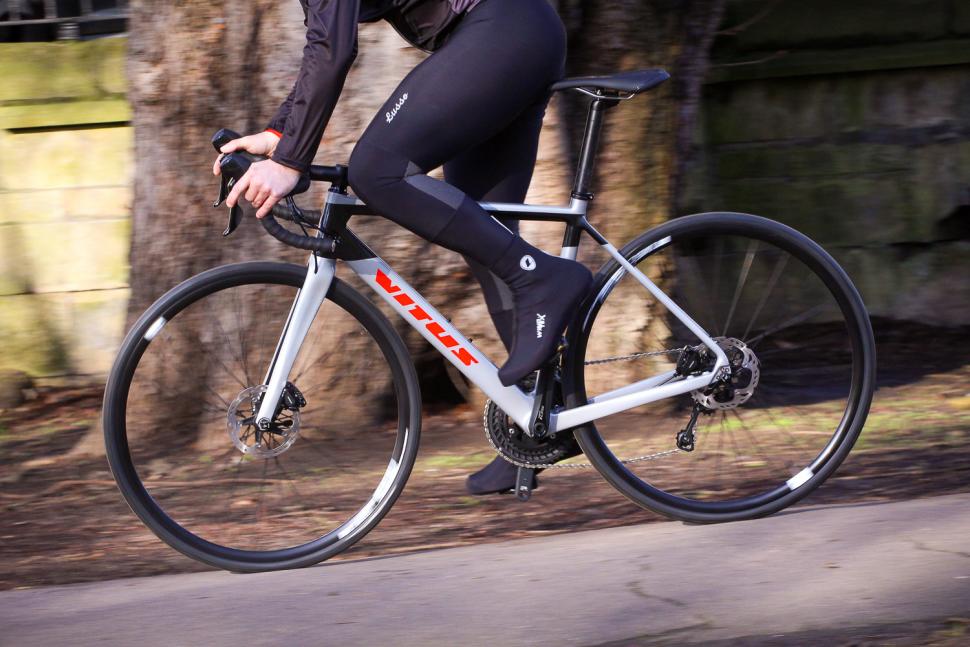
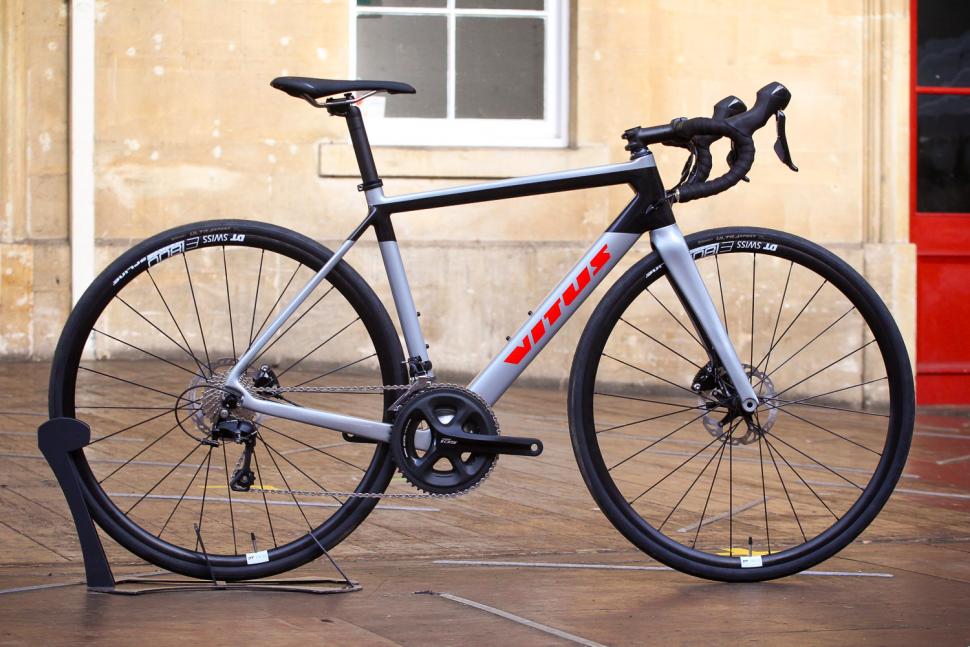
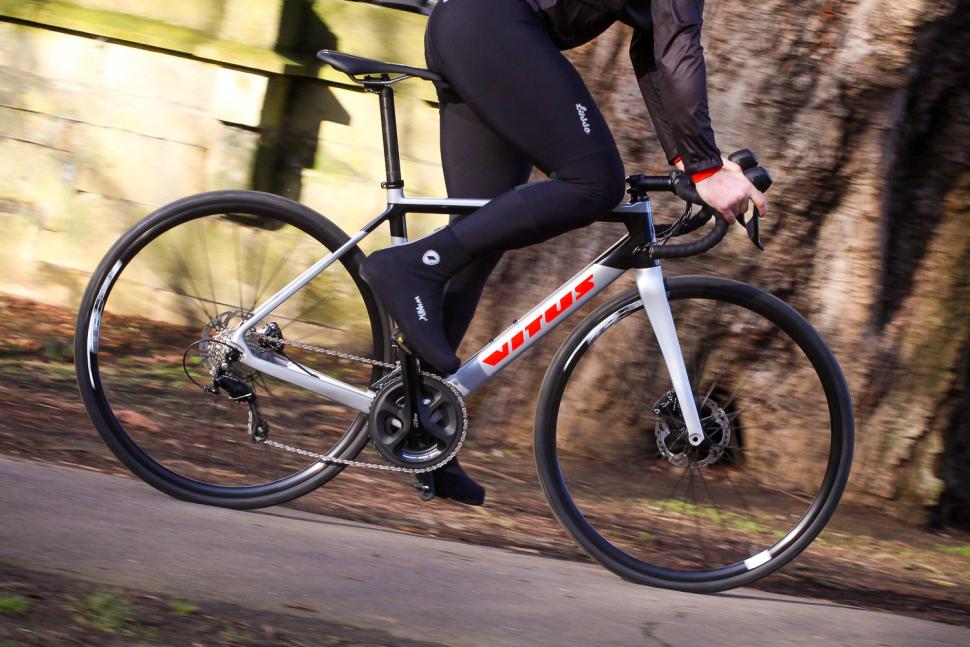
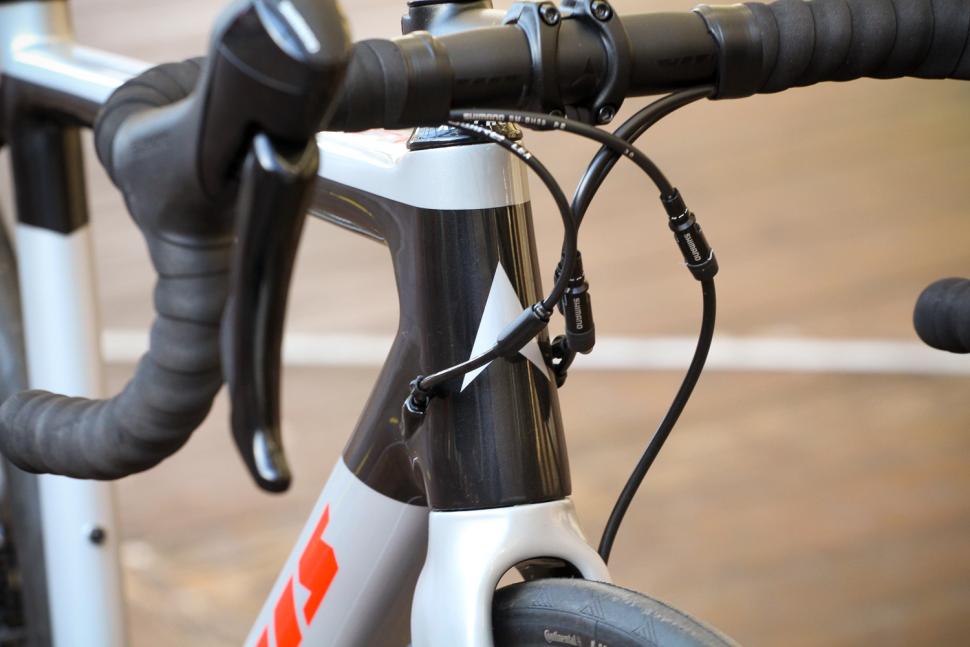
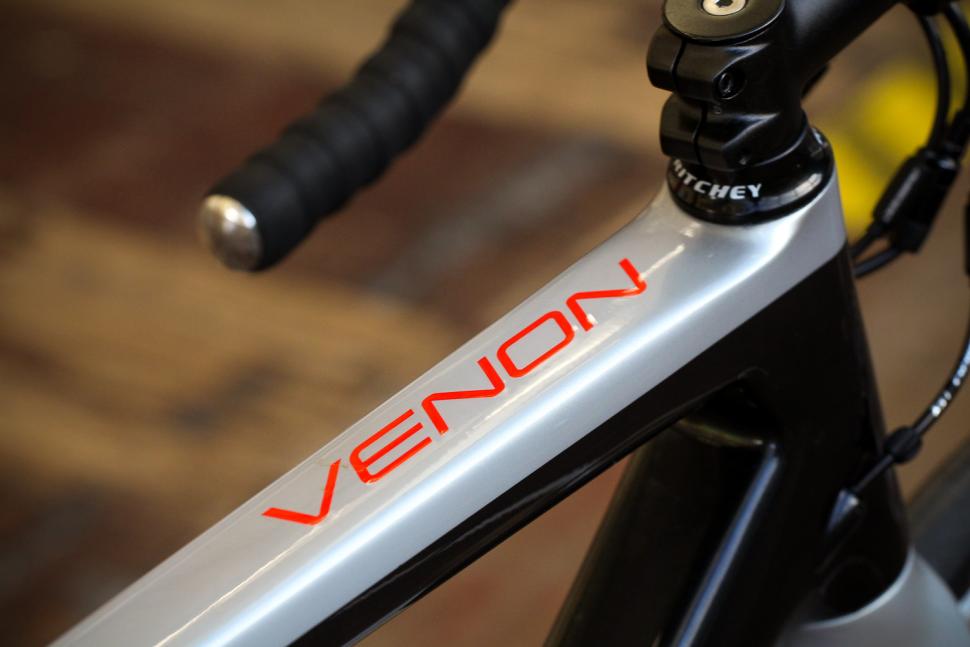
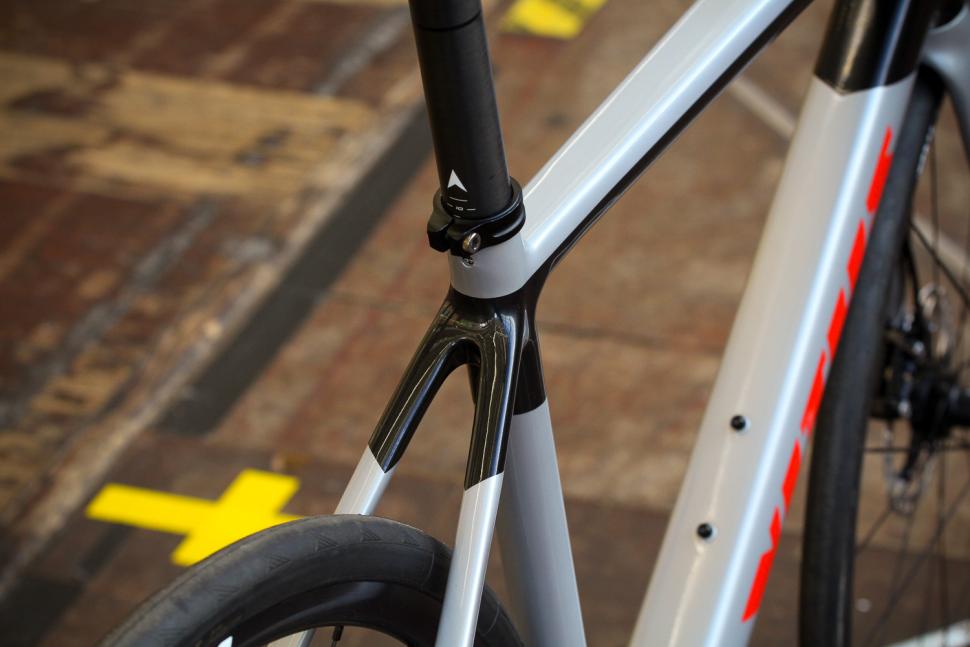
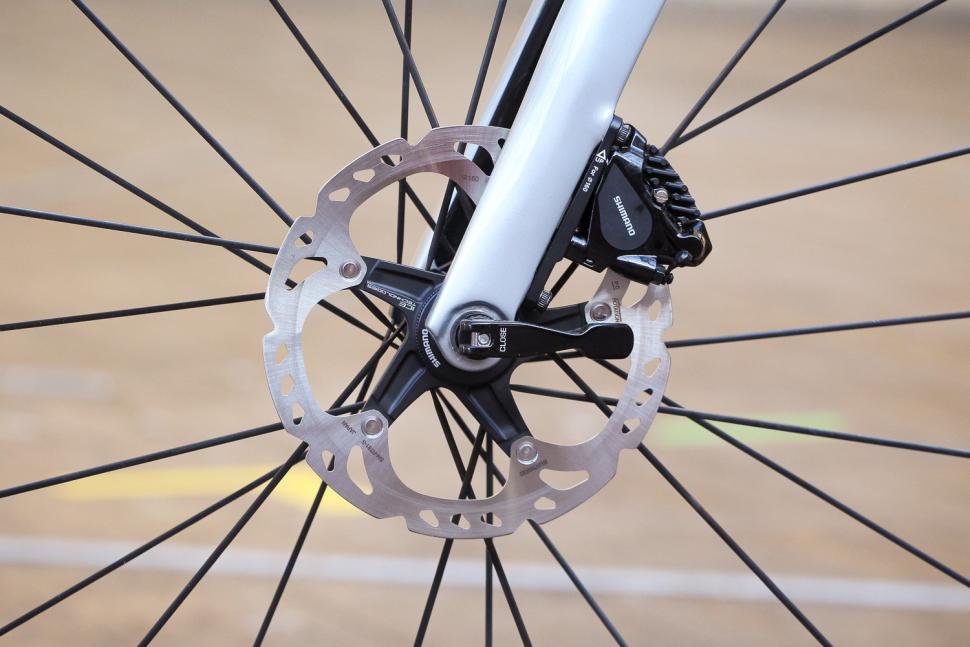
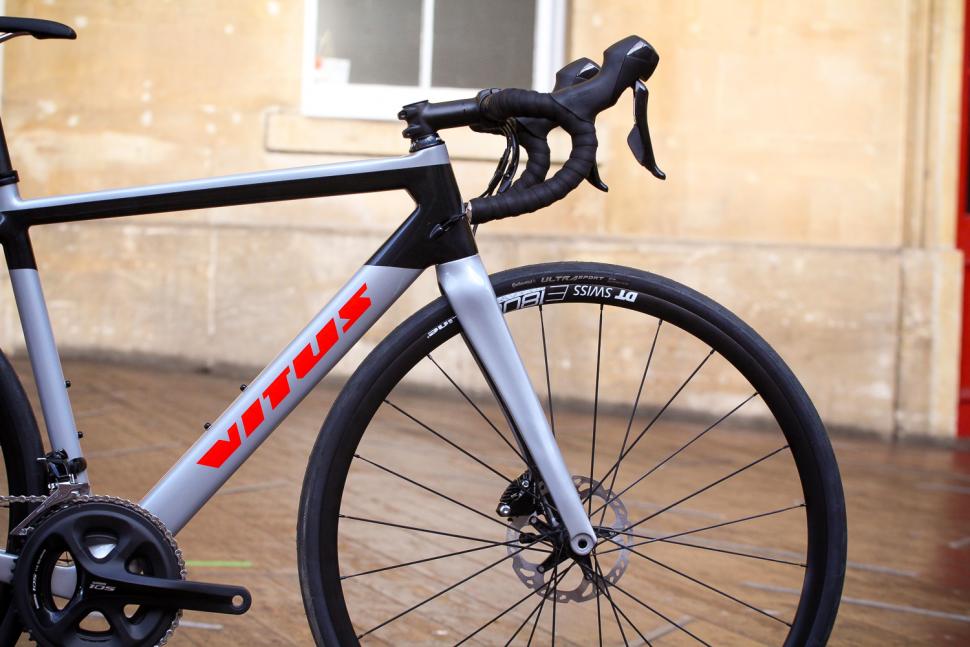
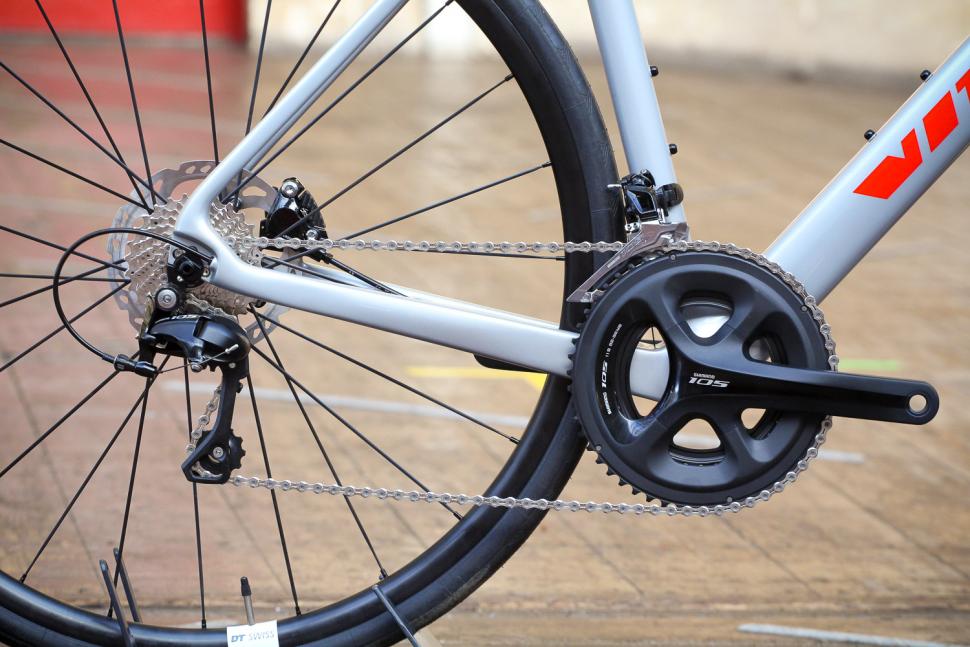
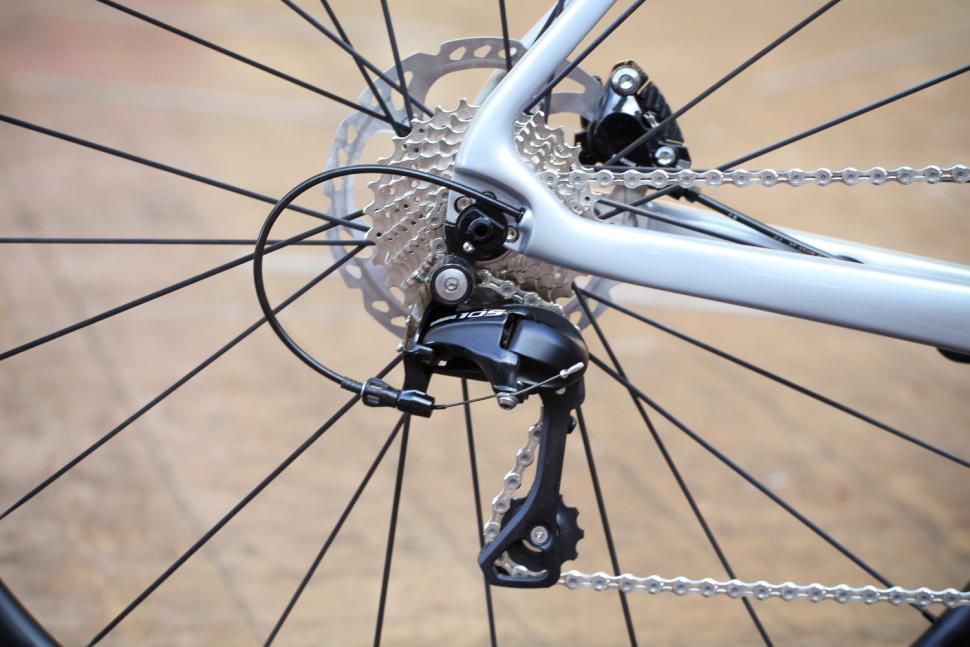




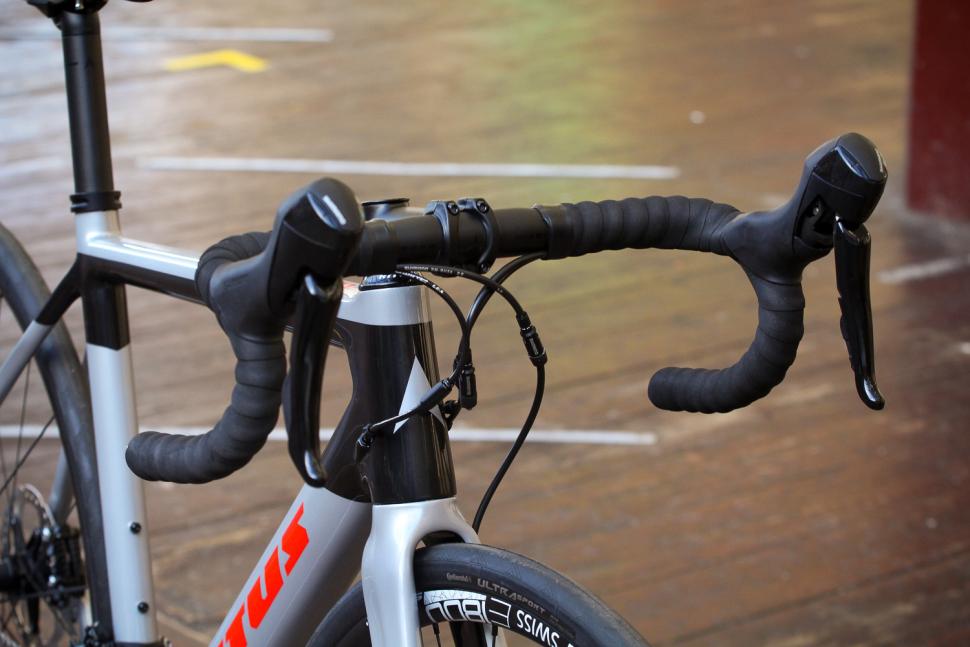
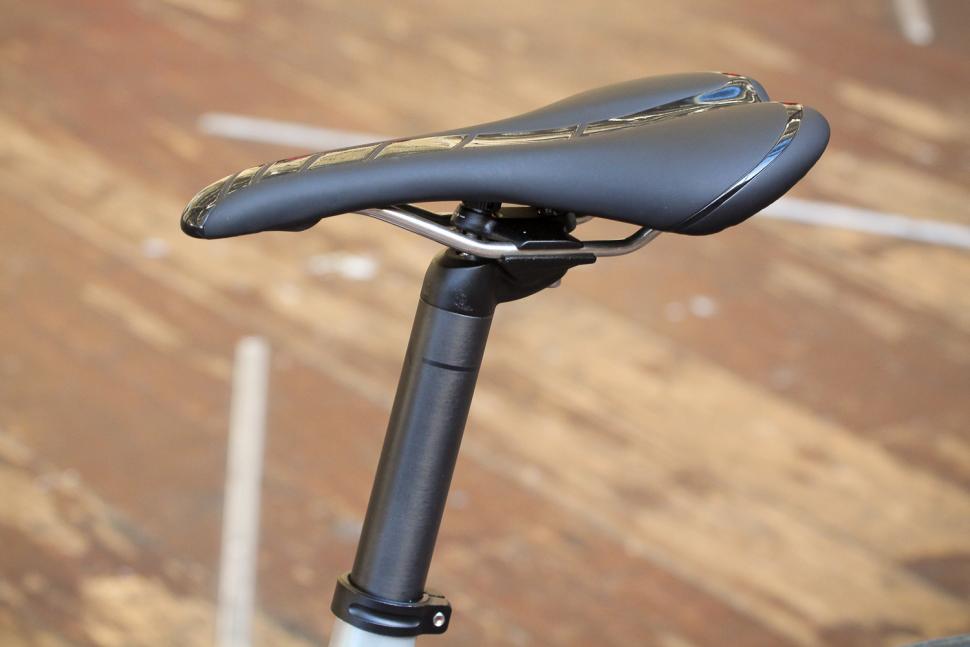
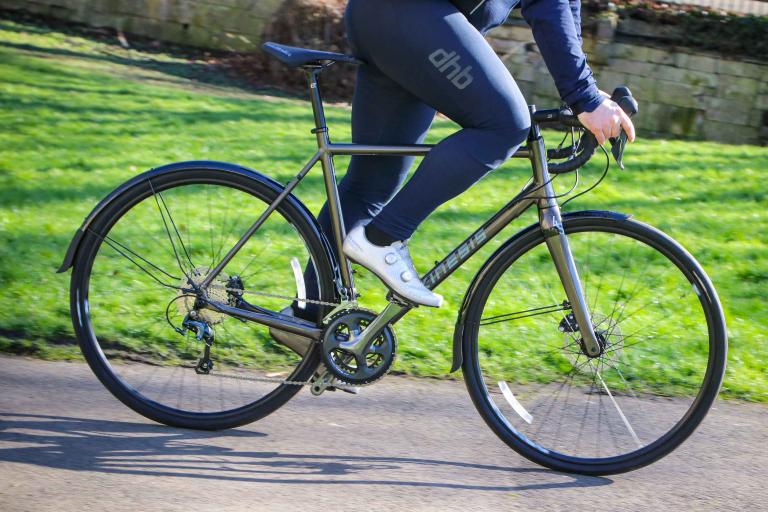
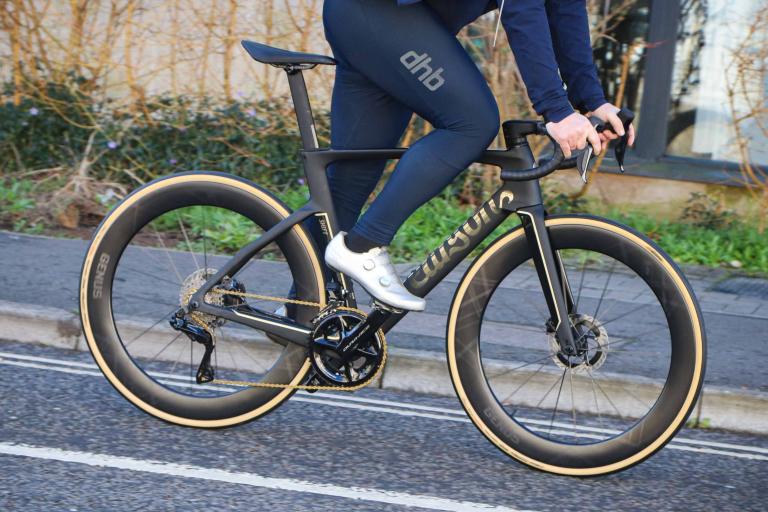
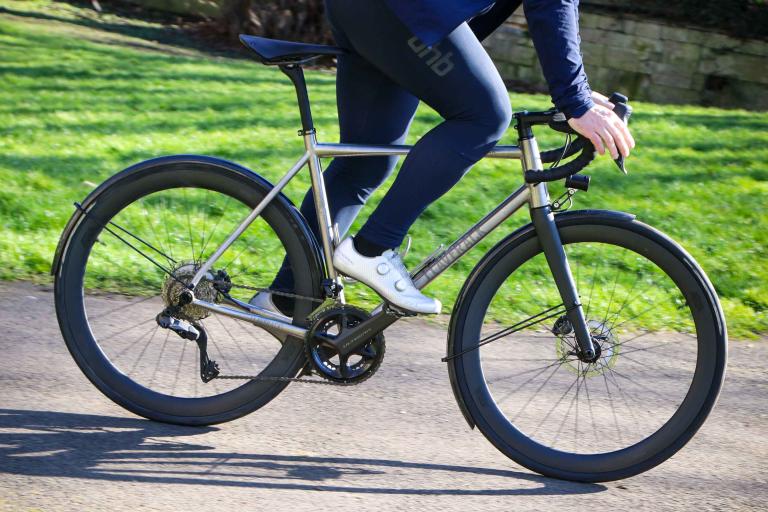
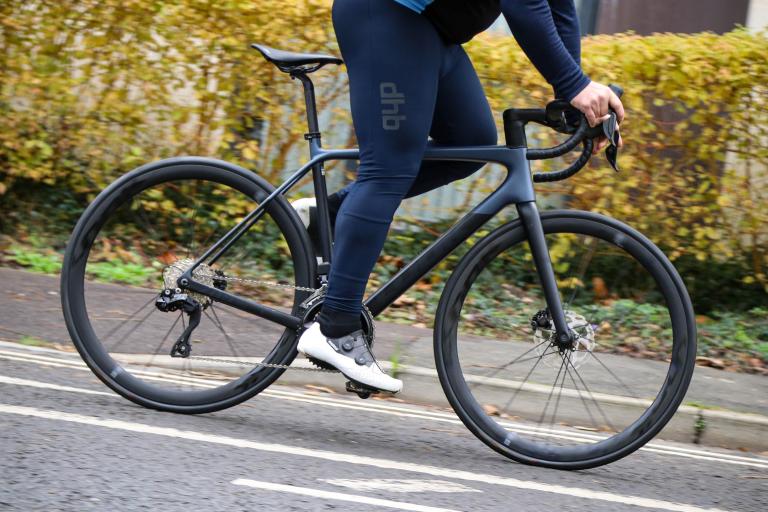
That one was completely different though, it was a driver not a car as in the other 3. So 1 in 4 of the stories manage to follow reporting guidelines.
Absolutely they could have. Tarmac is a petroleum-based product and its surface can be very oily when it's newly laid. This is particularly the...
I'm glad the article went into more detail and cleared things up, the headline had me worried that some autonomous building had run rampant and...
Still here, just showing a few signs of wear and tear. Hopefully still serviceable for some years to come.
Has he fully recovered though, and will he ever?...
How can you know that you are "equally fearful" as "any female cyclist"? There is no possible way of quantifying such emotions and female cyclists...
I think it would be fairer to blame the moon - as in "my client is a loony".
Nice idea but Gloucestershire Constabulary are not interested as exemplified by this prvious NMOTD. Not only was there NFA for the close pass in...
Peace Was Never An Option
I think black boxes are great for early detection of cognitive decline and/or sight problems. Someone's driving is going to become much less smooth...